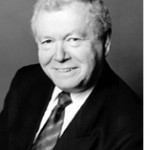By Dow Marmur

JERUSALEM — Binyamin Netanyahu’s days as prime minister of Israel may be numbered. He may, after all, not beat the long tenure of David Ben-Gurion, the founding father of the state. There’re indications that the police may be close to recommending indictment of Netanyahu on one or more charges based on the three separate investigations that are being currently conducted.
A telling indication was the attack Netanyahu launched the other day on the police citing, experts tell us, misleading information a la Trump in the hope of discrediting the investigators.
Efforts have been made by his parliamentary colleagues to bring in legislation that would enable the prime minister to stay in office even if he were indicted. Netanyahu didn’t want to vote on that occasion so as not to give the impression that such legislation is of interest to him personally. He has argued that in his case the prosecution will never muster damning evidence against him. The retirement home where my wife and I live provided an alibi: a few hours before the vote was due, his office indicated that he wanted to visit us. Those who went to greet him reported that he charmed them.
Another indication of restlessness is the number of foreign trips that the prime minister has made this year. He has been out of the country for 59 days at a cost of about a million shekel (some US$300.000) a day. This compares with 31 days in 2016 and 22 days in 2015.
Supporters point to Netanyahu’s trips abroad as evidence of Israel’s improved standing in the world and growing economic and political ties with important allies. His detractors suggest or imply that he uses the trips abroad as a way of diverting attention from his problems at home.
They also suggest that several ministers in his own coalition, be it within his own party or among his partners, are grooming themselves to succeed him by offering the public tax cuts and improved facilities.
Apart from contenders within his own party and among his coalition partners, are of course, leaders of the opposition. Avi Gabbay, the leader of the Zionist Union, makes no secret of his ambition. Many of his recent pronouncements seem to suggest that he’s moving his party into the center in the hope of gaining votes from disillusioned Netanyahu supporters. Similarly, Yair Lapid, the leader of Yesh Atid, the party that has always styled itself as centrist, hopes to have most seats after the next Knesset elections and thus become Israel’s prime minister. A previous Labour prime minister, Ehud Barak, seems also to be seeking a way back into politics, albeit more pathetically than persuasively.
A demonstration is to be held next Saturday night in Jerusalem against corruption in high places at which previous Netanyahu supporters are likely to attend. His party machinery is doing its utmost to keep away public figures in his party. But dejected ex-colleagues like former Defense Minister Ya’alon are said to be among the speakers.
As things are at the moment, none of the possible contenders seem to promise a drastic change of direction. Now when Trump’s Jerusalem declaration has disqualified the United States as the peace broker, it’s not obvious if any government in Israel would come closer to peace than its predecessors. Even if Netanyahu goes, his policies may stay, alas.
*
Rabbi Marmur is spiritual leader emeritus of Holy Blossom Temple in Toronto. Now residing in Israel, he may be contacted via dow.marmur@sdjewishworld.com
Pingback: Netanyahu faces foes inside and outside his coalition | Jack Brown
Pingback: NRT24 | Netanyahu faces foes inside and outside his coalition
Pingback: Israel announced withdrawal from UNESCO – Susan Heasley